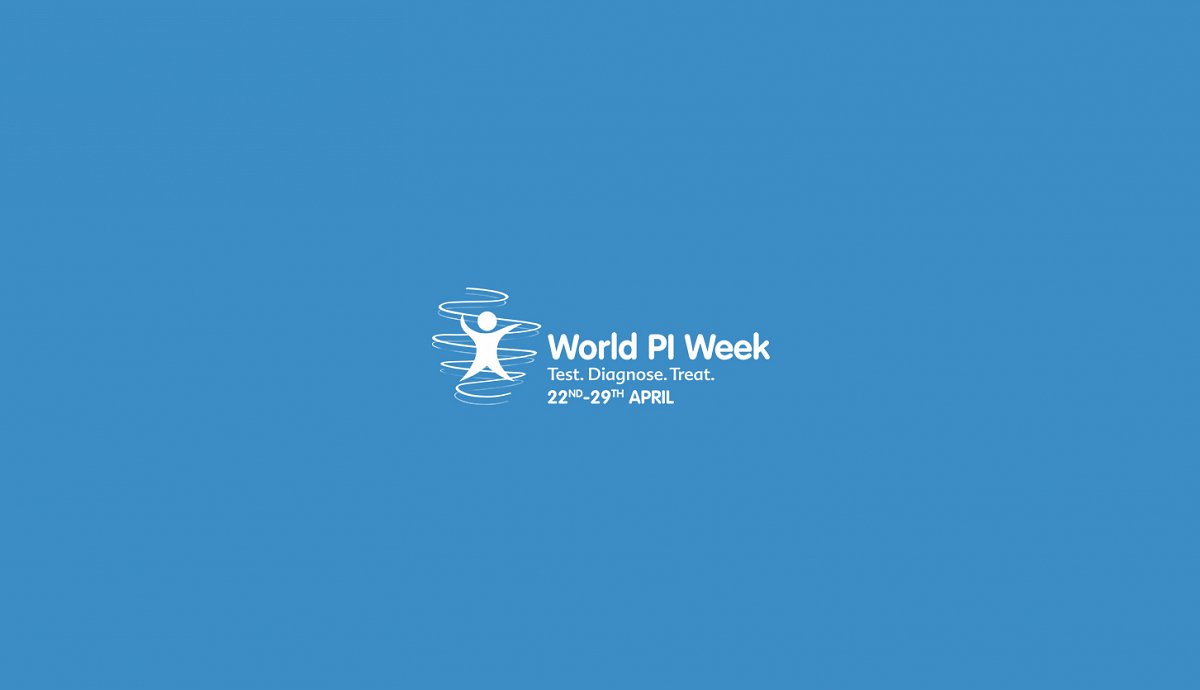World Primary Immunodeficiency Week
- Date: 22/04/18
- Location: WorldWide
World Primary Immunodeficiency Week
World PI Week 2018: Early testing and diagnosis of Primary Immunodeficiency makes a world of difference
Today, the Primary Immunodeficiency (PI) community invites people all around the globe to join forces during the “World Primary Immunodeficiency Week” (22-29th April) to raise awareness about PI and advocate for positive changes that will ensure a timely testing and diagnosis of the diseases.
PI is a growing category of over 350 forms of rare, genetic deficiencies of the immune system, increasing one’s susceptibility to a wide range of infections that can be life-threatening and affect different parts of the body including the skin, ears, lungs, intestines.
Celebrated for the first time in 2010, the global disease awareness campaign World PI Week gathers patients and patient organisations, families, healthcare professionals, scientists, industry and policy-makers on all continents to enhance the understanding and political recognition of these rare diseases. The 2018 edition starts today and focuses on early testing and diagnosis of PI, which are crucial first steps for a successful care pathway and management of these diseases, estimated to affect over six million people worldwide.
Although medical research and progress over the last six decades have helped to develop life-saving treatments, such as immunoglobulin replacement therapies, bone marrow transplantation, gene therapy, and contributed to greater understanding and knowledge of the diseases, it is estimated that around 70-90% of people living with the different forms of PI remain undiagnosed.
Diagnosing PI is complex due to the similarity of symptoms with those of “common” infections. The relatively low awareness of PI among healthcare professionals and the general public, the lack of diagnostic facilities and the variety of these inherited genetic disorders often lead to diagnostic delays. Misdiagnosis or under diagnosis followed by an inappropriate treatment can leave patients in a vulnerable situation, with recurring infections, severe and permanent organ damage, physical disability or even death. But people with PI can be cured with timely diagnosis and appropriate treatment, which remain the keys to successful care. Recent advances in gene technology have contributed to better diagnosis, though genetic testing is still unavailable in various parts of the world. On World PI Week, the PI community encourages healthcare authorities, payers, healthcare professionals, patients and the general public to engage and establish a policy framework to drive greater public awareness of PI and education both among primary and specialist care providers, to develop better diagnostic facilities, ensure an improved availability of screening tests for healthcare providers and guarantee equal, universal patient access to them.
Test. Diagnose. Treat!
Engage in World PI Week: download the World PI Week materials on the campaign’s website, learn more about the activities held in the different parts of the world being public lectures & information sessions, walks, family and community initiatives, social media activities, press conferences, media events and join!

